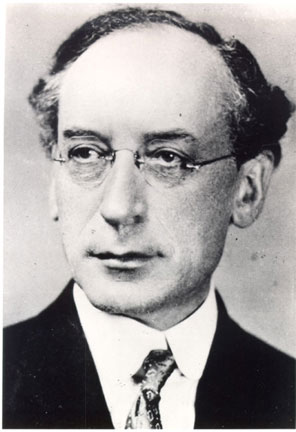Morris Raphael Cohen was an agnostic, despite
the fact that he was introduced as a child to the traditional
Judaic veneration for learning as well as a certain piety of
spirit that remained with him throughout his life. His idea
of scientific method emphasizes hypothesis, experiment, and
systematic doubt. For no hypothesis is more than probable, though
truth is our aim. Its principal expressions are theories that
assemble apparently disparate facts by specifying their common
character and relations. This conceptual cycle—hypothesize,
experiment, then rethink organizing ideas if an hypothesis is
falsified by the data—is also appropriate to legal and
moral practice. For we don’t know what is best to do or
not do, until experience has established the conditions for
human well-being. This, Cohen’s pragmatism, abuts his
realism and his moral sense. He never doubted that nature has
an established form, one that we can know. Nor did Cohen doubt
that well-being has conditions and characteristics that are
universal, whatever the specificities of particular cultures.
Some of them facilitate, others impede human improvement, though
perfectibility is everywhere possible. Thought—critical,
self-critical intellect—is the only reliable way to achieve
it.
Dr. Cohen's collection contains essays written over the past
twenty-eight years, but united by a pervading largeness of spirit,
graciousness of style, and consistency of viewpoint. They reflect
their author's profound devotion to the liberal temper, which
he conceives not as a specific economic or political creed,
but as "a faith in enlightenment, a faith in a process
rather than in a set of doctrines, a faith instilled with pride
in the achievements of the human mind, and yet colored with
a deep humility before the vision of a world so much larger
than our human hopes and thoughts."
The unique characteristic of liberalism, he believes, is its
commitment to skepticism, to tolerance, to free inquiry, to
the methods and principles of nationalism. "In the end,
there is no way in which people can live together decently unless
each individual or group realizes that the whole of truth and
virtue is not exclusively in its possession." Nor is liberalism
the product of any special economic or political circumstance.
It is "older than modern capitalistic economics. It has
its roots in the Hellenic spirit of free critical inquiry which
laid the foundations of the sciences on which modern civilization
rests."
Arthur M. Schlesinger, Jr. "
Where Liberalism is Vulnerable,"
Commentary, 2, No. 3 (Sept. 1946), p. 250. This review of
The
Faith of a Liberal, Selected Essays by Morris R. Cohen
summarizes Cohen's definition of liberalism in his own words.
Arthur M. Schlesinger, Jr. retired from the Albert Schweitzer
Chair in the Humanities, City University Graduate Center,
Department of History in 1996. He served as a special assistant
to President John F. Kennedy and was a member of the Society
of Fellows at Harvard University from 1939 to 1942.



